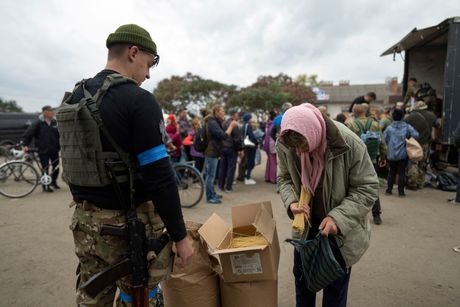Analysts: There will be no changes in the Serbian Government's policy

The war in Ukraine, the migrant crisis, energy supply problems, the situation in Kosovo and Metohija are circumstances that do not officially affect the formation of the Government of Serbia, but can complicate that process, according to Tanjug's interlocutors who are of the opinion that the future government will remain committed to a balanced policy when it comes to the stance toward the East and the West.
Director of the public opinion research agency Faktor Plus Vladimir Pejic recalls that analyses and media reports mentioned that a new government was expected in August, September at the latest, so now based on those statements it can be interpreted as surprising that the cabinet has not been formed yet.
However, he notes that the formation of the government took long on previous occasions as well, so this is not a surprise.
"In addition to some objective reasons there are also subjective ones, but as long as everything is within the legal deadline, it's fine. The circumstances, it seems to me, are difficult, but not much more difficult than they were in August, other than the fact that the situation in the world is somewhat more difficult than it was when the formation of the government was expected," Pejic told Tanjug.
He said that now unlike on some previous occasions the reasons cannot be sought in political instability since there is no problem with the parliamentary majority.
Pejic added that he does not expect major changes in the policy conducted by the future government, and when asked whether this could change due to external pressure, perhaps after the meeting of the European political community in Prague, he replied that he does not believe that the Prague summit will have a major impact neither on the composition of the new government nor on its policy.
"I believe that the meetings in Prague will be significant, but difficult. Serbia has a continuity of a balanced policy, some like it, some don't, however, these authorities led by Aleksandar Vucic have opted for such a policy and persist at it. I expect that this will continue. We'll see how it goes because it's increasingly difficult to lead such a policy," said Pejic.
Leaders from all European countries except Belarus and Russia, as well as leaders from the Western Balkans, will meet in Prague on October 6, where they will discuss an initiative to establish a European political community as a platform for dialogue between existing EU members and those countries that aspire to it, and that will also be the moment of the launch of the idea first promoted by French President Emmanuel Macron in May.
Analyst Dejan Vuk Stankovic assessed that the Prague meetings can influence the policy of the Serbian government if it chooses complete integration into the so-called Western world.
"The meeting in Prague was conceived as the creation of a geopolitical community which would, in addition to EU member states, include countries applying for membership and on the other hand European geopolitics, which at this moment concretely implies a strong political distance from Russia, i.e. sanctions against Russia," Stankovic told Tanjug.
According to him, to the extent that Serbia is ready to accept the logic of sanctions against Russia these meetings will also affect Serbia's future policy, that is, the formation of the government, its composition and functioning.
He believes that, if Serbia accepts membership in the European political community, it will soon have to impose sanctions against Russia.
Stankovic, on the other hand, assesses that Serbia will not so easily change its current policy of political neutrality regarding the conflict in Ukraine.
He believes that Serbia will stick to its current policy, which is not to impose sanctions against Russia, and not to recognize the results of referendums, the annexation of Crimea and the legitimacy of the military operation.
He recalls that Belgrade is specifically expected to take a stand different than the current position, and adds that the West has an explicit, and the East an implicit, but still a present demand.
"The question is how public opinion would react to political u-turns when it comes to foreign policy, that is, the choice of alliances. I'm not sure that public opinion would 'swallow' sanctions against Russia as something positive," Stankovic said.
(Telegraf.rs)
Video: Kolaps kod Zvezdinog stadiona: Ljudi napuštaju autobuse i pešače
Telegraf.rs zadržava sva prava nad sadržajem. Za preuzimanje sadržaja pogledajte uputstva na stranici Uslovi korišćenja.

